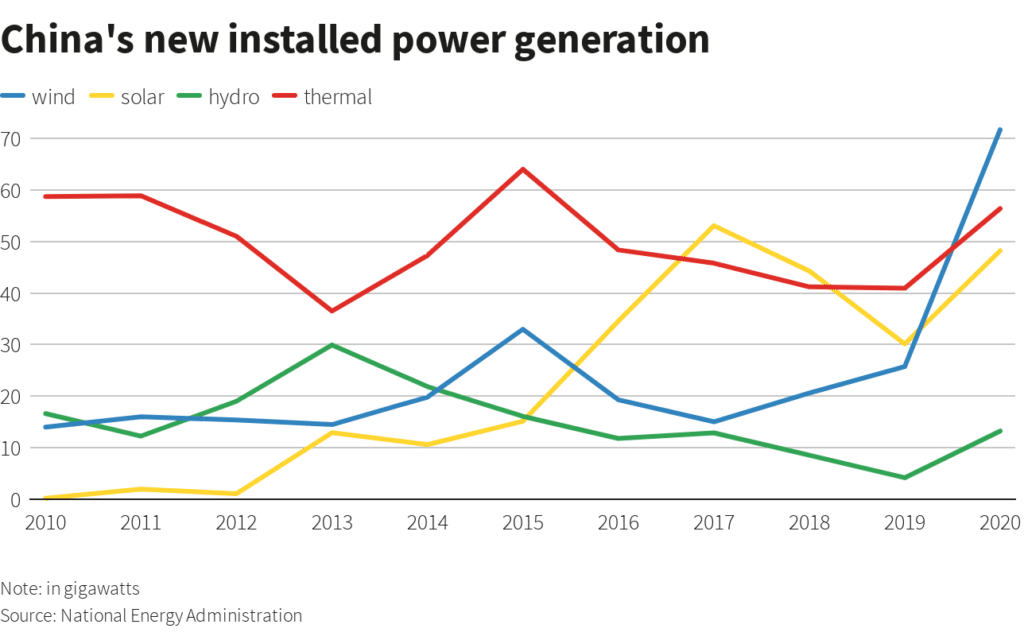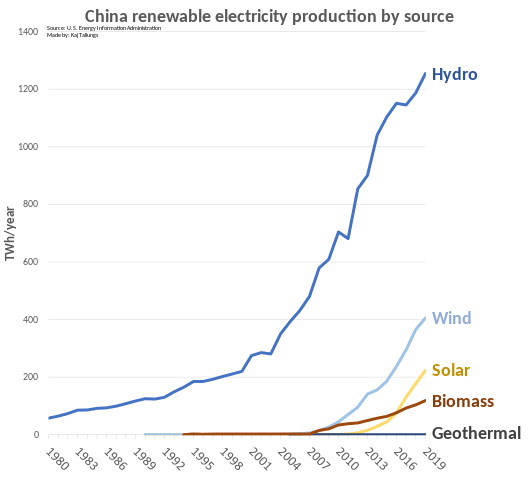China is ahead in terms of investment in renewable energy last year, spending a total of $103bn, or 36% of the world total. How does that tie into the financial markets and trading in general?
A rise in renewable energy investments
China is well know worldwide for its unprecedented levels of pollution. In 2015 they invested more than the UK ($22.2bn), US ($44.1bn) and Japan combined – according to the United Nations Environment Programme's annual report.

Worldwide, countries invested $286bn in renewable energy capacity, research and development in 2015. Comparing that to 2004, that is more than six times higher – a new world record with $13bn more invested than in 2014.
The Climatescope revealed that developing countries outperformed (in terms of investing in renewable energy) the developed counterparts for the first time. UNEP found that they invested $156bn last year, which almost a 20% increase. On the other hand, developed countries are sitting at a 8% decrease – at $130bn.
For the first time, coal and gas electricity attracted less than half the investments made in renewable energy. Achim Steiner (executive director of UNEP) said that renewable energy is proving valuable, especially in societies where this type of energy can have a great impact on quality of life, environmental sustainability and economic development.

The International Renewable Energy Agency’s (IRENA) 2020 research shows that transformation to greener energy would limit global temperature rise below 2 degrees Celsius. While it would cost about $19 trillion more, than the current approach, it could bring in benefits worth anywhere from $50-140 trillion by the year 2050.
The International Renewable Energy Agency says, that by investing in green energy we could see tens of millions of jobs created worldwide. We could see a return on investment between 300 to 800% over time.

Possible affect on the financial market and opportunities for traders
Oil stocks are popular among some investors, due to the recent prices crash. Much of this interest is based solely on the theory that what goes down, must come back up. The structural issues this sector has might lower return over the long-term. But oil also faces a disruptive force: renewable energy. In the coming decades, buying stock of companies in the green energy sector might be a better bet than those focused on oil. Some of our top options are:
- Brookfield Renewable Partners (NYSE:BEP)
- First Solar (NASDAQ:FSLR)
- Clearway Energy (NYSE:CWEN.A)(NYSE:CWEN)
For the past couple of decades, we have seen a steady increase in global energy demand. Experts forecast that the demand for renewable energy will rise in the coming years. Countries like the UK remain bound by the National Climate Act, which requires a 80% greenhouse gas emissions decrease by the year 2050. Approximately $8.5bn will be spent in the UK alone for renewable jobs in the years 2020-2021 (according to OBR). This means that companies in the renewable energy space could see growth in coming years.
Why would online traders and investors consider investing in renewable energy?
- Ethical investment – on top of the investment opportunity, there is also an ethical aspect to investing in renewables
- Energy security – the more energy is produced from renewable sources, the less countries have to import it
- Instability of fossil fuel prices – acceleration of the shift to cleaner energy
- Renewable energy could lead to approximately 60 million jobs by the year 2050
- Overall growth of the sector
Is renewable energy a good investment?
Clean energy sector is a massive opportunity for investors. You should look for companies that focus on solar energy and have a strong balance sheet. These have the highest potential to generate high returns.




